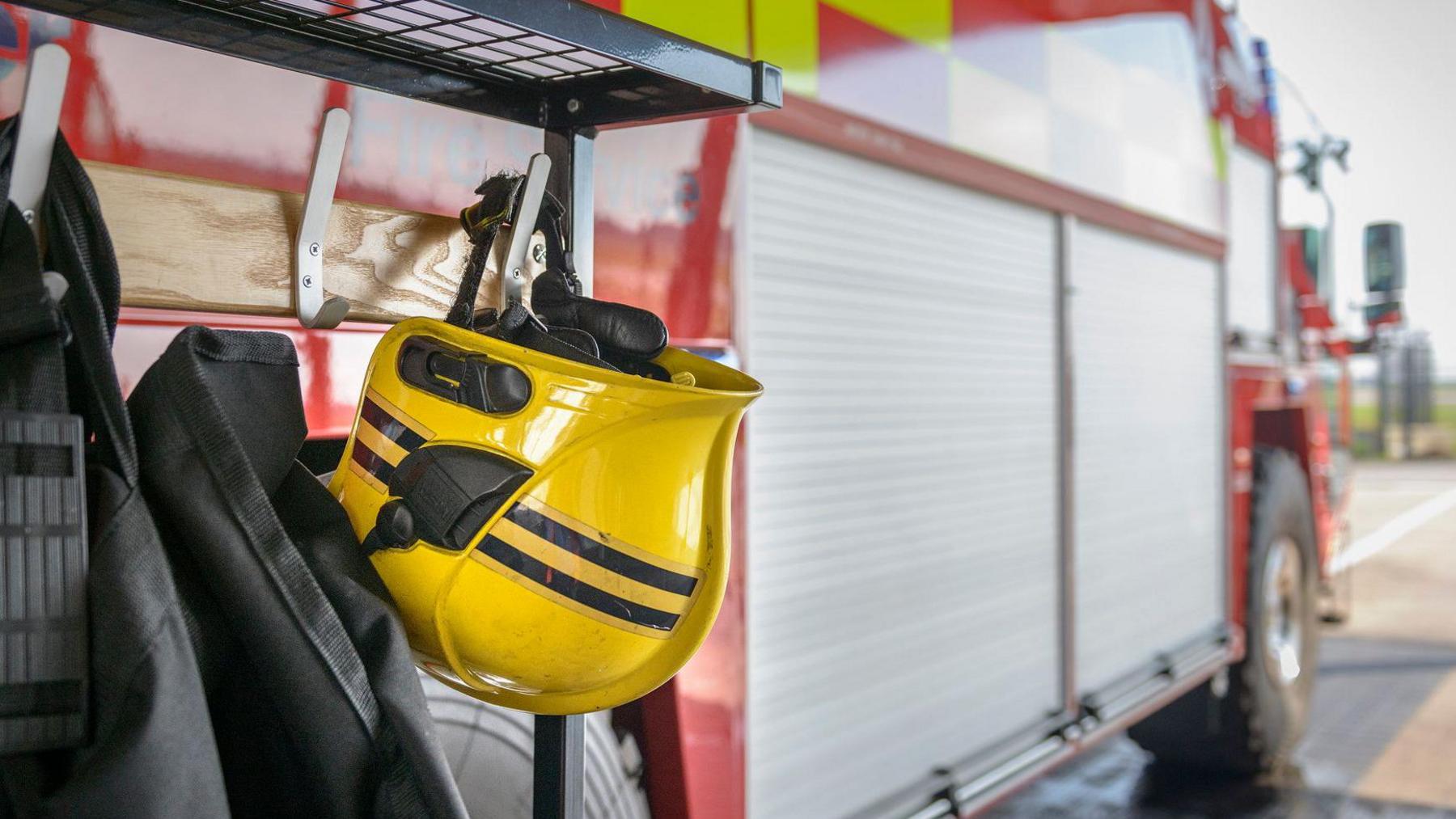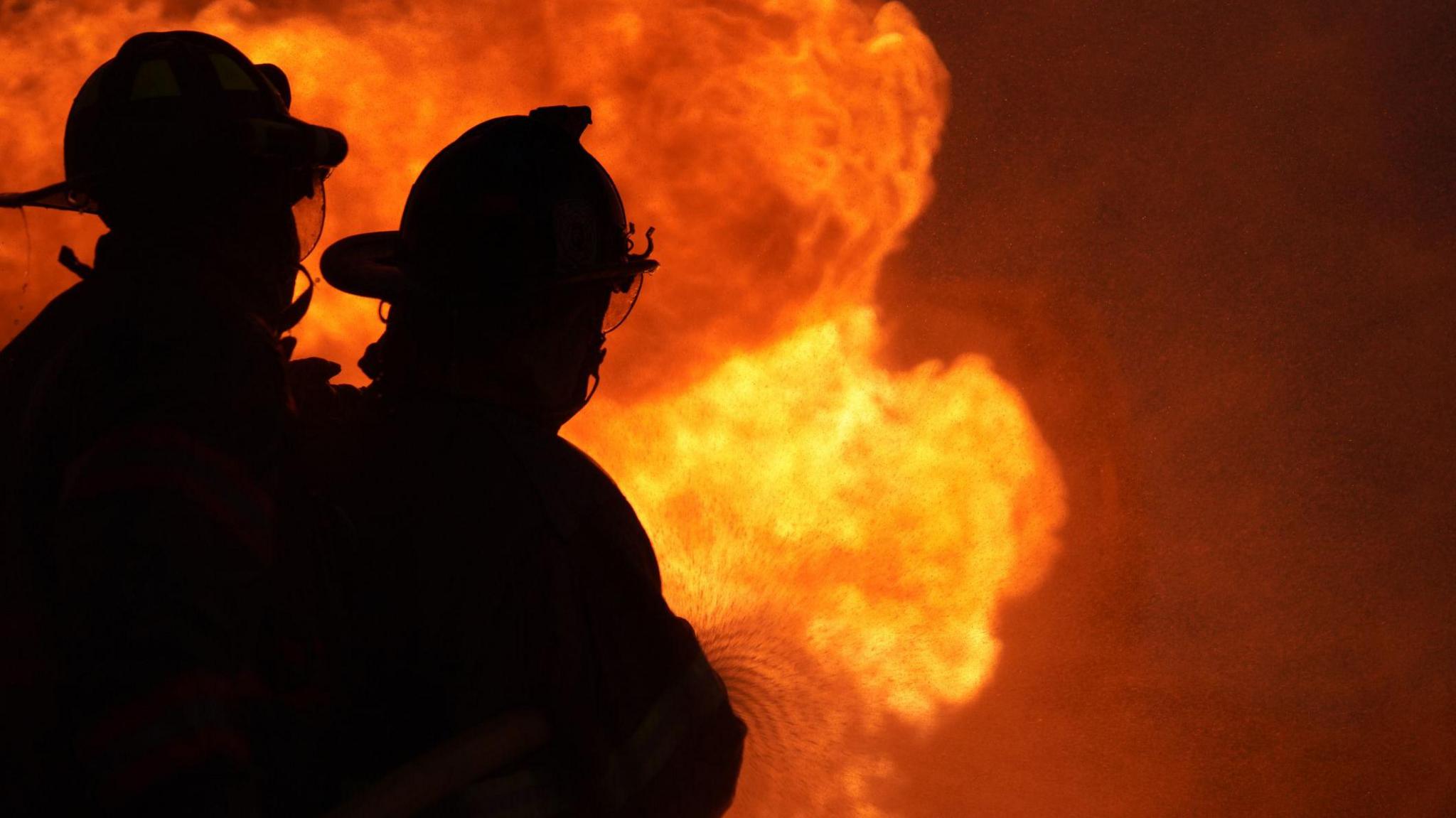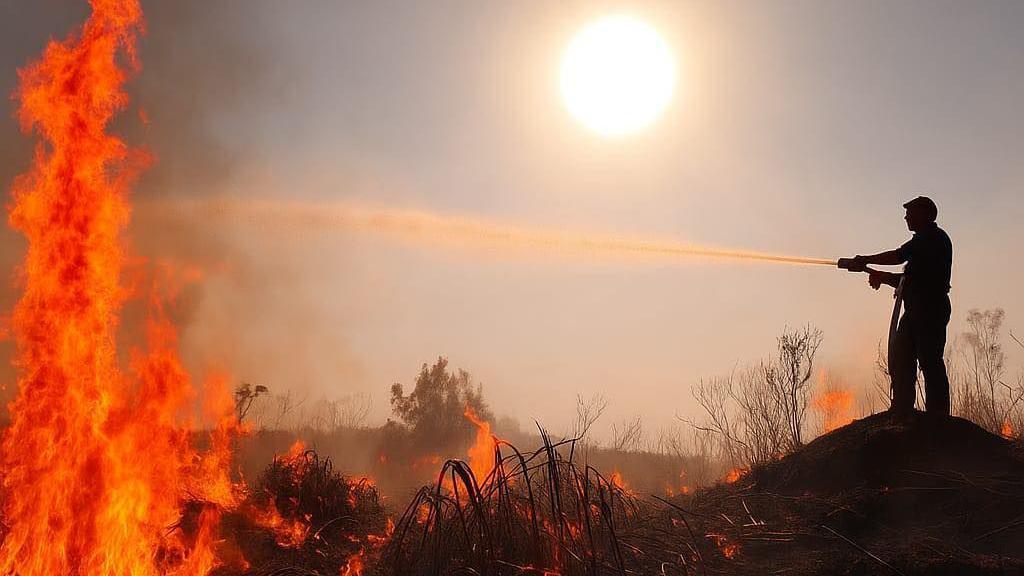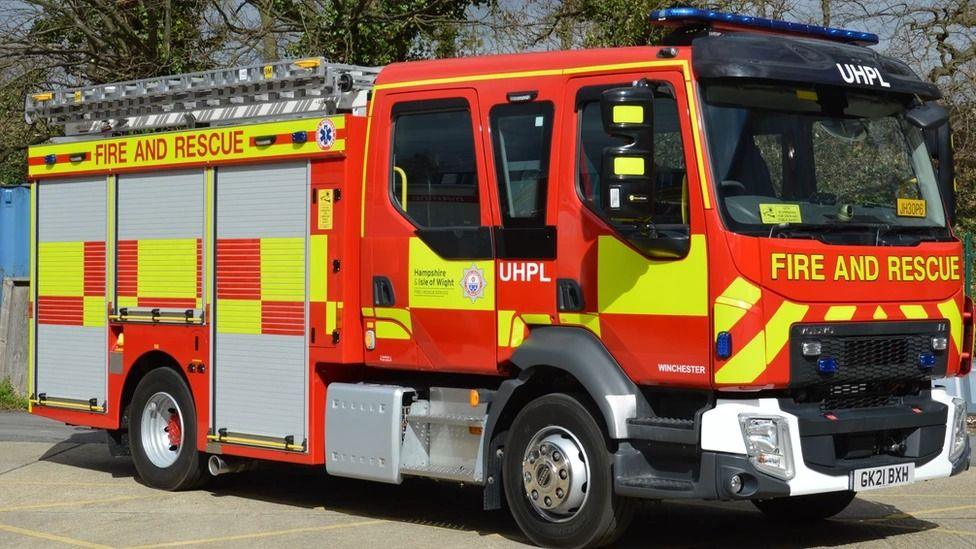Fire cuts 'could leave brigades vulnerable'

Funding cuts could affect brigades' ability to keep communities safe, it is claimed
- Published
Fire brigades in north-east England have warned they would be among the hardest-hit nationally if "incomprehensible" funding proposals were to be approved.
Changes put forward as part of the government's Spending Review would lead to "real and significant cuts" across the country, according to the National Fire Chiefs Council (NFCC).
Both Tyne and Wear Fire and Rescue Service (TWFRS) and Cleveland Fire Brigade (CFB) said without adequate funding, difficult decisions about provisions "may become unavoidable".
The Ministry of Housing, Communities and Local Government said it was working to ensure crews had the resources needed.
The NFCC said fire authorities nationally would be left facing a total real-terms cut in grants of more than £100m - a step it said would "undermine their ability to keep communities safe".
'Worst-hit region'
Calling the proposals made as part of the Fair Funding Review 2.0 "incomprehensible", the organisation claimed fire and rescue services could "not continue to be expected to deliver more with less".
TWFRS confirmed it had worked with the NFCC to asses the potential impact and found services in the North East "would, as far as we can determine, be amongst the worst affected and impacted".
A spokesman said: "We will always do our best to work hard for communities, but this needs adequate funding for day-to-day services as well as ensuring we can invest in our staff, fire stations and other essential equipment and facilities."
Councillor Phil Tye, chairman of the body which governs TWFRS, said any changes must not leave the brigade "in a more vulnerable position".
"The North East would, under the current funding proposals, see further budget reductions and a disproportionate adverse impact comparative to most other areas of the country in terms of spending power and real terms funding," he added.

North East brigades say they may have to look at what services they can afford to offer
CFB said it also acknowledged the concerns raised by the NFCC and that it "fully supports the call for a funding model that reflects the real and growing demands placed on the fire and rescue service sector".
Describing itself as operating in one of the most-deprived areas in the country, the brigade said it "faces unique and complex challenges, from high levels of deliberate fire-setting to significant industrial risks".
It warned: "These pressures continue to grow, yet current funding levels do not adequately reflect the scale or nature of the risks we manage daily.
"Without fair and sufficient funding, difficult decisions about service provision may become unavoidable."
In response, the Ministry of Housing, Communities and Local Government said it understood the challenges fire brigades faced and it was "determined to deliver better public services".
A spokesman said: "To support our brave firefighters who work tirelessly to keep communities safe, standalone fire and rescue authorities will receive an increase of almost £70m next year.
"We continue to work closely with the sector to ensure fire and rescue services have the resources they need."
Follow BBC North East on X, external, Facebook, external, Nextdoor and Instagram, external.
Get in touch
Do you have a story suggestion for BBC Tyne?
- Published23 August

- Published15 August

- Published14 July
